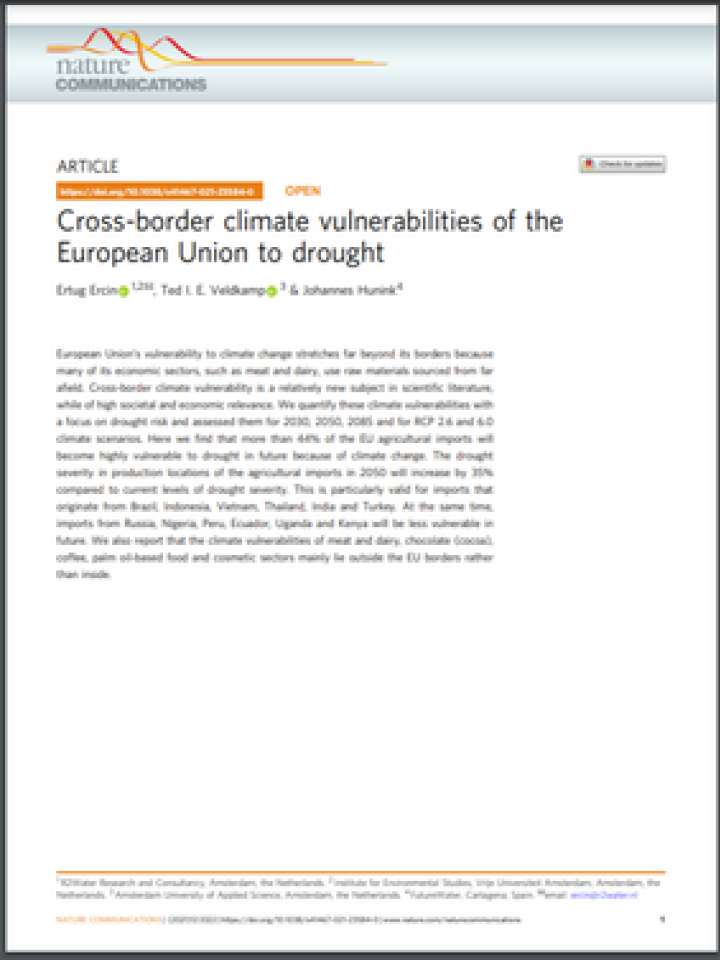Cross-border climate vulnerabilities of the European Union to drought
This study quantifies European climate vulnerabilities with a focus on drought risk and assessed them for 2030, 2050, 2085 and for RCP 2.6 and 6.0 climate scenarios. European Union’s vulnerability to climate change stretches far beyond its borders because many of its economic sectors, such as meat and dairy, use raw materials sourced from far afield. Cross-border climate vulnerability is a relatively new subject in scientific literature, while of high societal and economic relevance.
The study finds that more than 44% of the EU agricultural imports will become highly vulnerable to drought in future because of climate change. The drought severity in production locations of the agricultural imports in 2050 will increase by 35% compared to current levels of drought severity. This is particularly valid for imports that originate from Brazil, Indonesia, Vietnam, Thailand, India and Turkey. At the same time, imports from Russia, Nigeria, Peru, Ecuador, Uganda and Kenya will be less vulnerable in future. The study also reports that the climate vulnerabilities of meat and dairy, chocolate (cocoa), coffee, palm oil-based food and cosmetic sectors mainly lie outside the EU borders rather than inside.
Explore further
